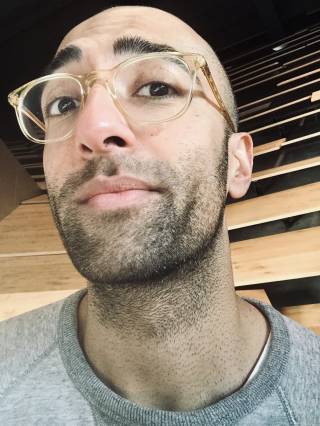I am Associate Professor of the History of Early Modern and Colonial India within the UCL History Department, where I am also Director of the Centre for Transnational and Global History, as well as the founding Co-Director of the Centre for the Study of South Asia and the Indian Ocean World, which is based in UCL’s Institute of Advanced Studies. I read for a BA (Hons.) degree in PPE at Oxford (2004-7), studied for an MSc in Economic History at the LSE (2007-8), and then wrote my doctorate at Cambridge (2010-13), where I was a Prize Student at the Centre for History and Economics (2010-11). I was subsequently the Moses and Mary Finley Research Fellow at Darwin College (2013-14), and also taught at Imperial College London, prior to taking up my post at UCL (2014-).
Broadly, I am a historian of economic and material life, and much of my work and its sources/methods is interdisciplinary. My early work was on north India’s caravan trade with Afghanistan and central Asia from the Mughal period to the early twentieth century, and, through it, the larger global history of the Eurasian continental interior and its gradual transformation. My doctoral dissertation on this topic was awarded the Ellen McArthur Prize (2014) for the best dissertation on social or economic history at Cambridge. I expanded and rewrote this into India and the Silk Roads. The History of a Trading World (2021), which was published by Hurst, HarperCollins India, and the Oxford University Press. It was awarded the Economic History Society’s First Monograph Prize in 2022 for the best work of economic or social history published in the previous two years. It forms the centrepiece of a larger body of work that spearheads an ‘interior’ or ’terrestrial turn’ in South Asian and global history, which includes work on the Burma-China borderland, on the interest of Irish-American Republicans in the potential of Muslim revolt on the frontiers of the British Empire, on commodities like salt and opium as lenses to rethink the history of empires, and on mobile groups like long-distance traders/smugglers, meanwhile critically interrogating concepts like ‘Zomia’.
If my first book demonstrates the varied and steadily changing ways that trade mattered to a range of groups, it also raises questions about how South Asia’s deepening globalisation – and, with it, the wider and deeper creep of commercialisation and market relations – reshaped people’s beliefs, social lives, and livelihoods, as well as the reach of the state. India and the Early Modern World (Routledge, 2024), my second book, consistently returns to these issues in what is the first major, global historical survey of India during the period from c. 1400 to c. 1750, structured as ten thematic essays on such topics as ‘belief’, ‘urbanism’, ‘capitalism’, ‘violence’, ‘kingship’, and ‘knowledge’. Rather than focussing on a single kingdom or empire, or only on the Persianate sphere or the Indian Ocean world, it surveys the entire subcontinent, while consistently comparing or contrasting Indian developments to those elsewhere in the world. A key argument is that India and ‘Indians’ shaped – as much as they were shaped by – many of those experiences, processes, and phenomena that are the hallmarks of this period, to the extent that we can usefully speak of ‘global early modernity’ and thereby critically reframe what has for so long been a Eurocentric concept. This books forms, moreover, a point of departure for my longer-term research work into the rise of 'commercial society' in early modern South Asia, one aspect of which will be published as a book on everyday economic life in the Mughal Empire commissioned by Penguin India and thus written for a broad audience.
Besides these projects, I have also written about fashion and visual and material culture in early modern South Asia and on the non-human in the history of empire(s). Having developed a fascination for object-based histories and material culture in my past research, an emerging area of interest revolves around the place of South Asia and its material culture in Europe. In contrast to most work, which focuses on imperial metropoles like Britain or the Netherlands, I am more interested in the European periphery. I also maintain an interest in the work of museums and public institutions around more critically narrating South Asian history through their collections, having organised a conference on this theme in 2018 at the British Museum. More recently, I’ve brought these concerns to other media/venues, having worked as historical consultant on a two-part documentary on India for a major UK broadcaster, for example. In the past, I have had the pleasure of being involved in Manchester Museum's development of a brand new, South Asia Gallery (opened 2023), which was curated by members of Manchester's South Asian diaspora communities, and also with the British Museum on other community-led projects. Sparked by critical reflection upon this work, I have also begun writing on the histories of South Asian migrant communities in modern Britain, on difficult pasts, and on the idea of 'failure’.
I welcome interest from doctoral and postdoctoral researchers whose work encompasses any of these topics and themes. My current doctoral student, Nalina Gopal, is researching the Tamil diaspora – and their archives – in the Straits Settlements in the eighteenth and nineteenth centuries. My former student, Patcharaviral Charoenpacharaporn, wrote on Indo-Thai relations during the early Cold War era and is now Assistant Professor of History at Chulalongkorn University.
Major publications
For a list of Jagjeet's publications please consult his UCL Profile.
Current PhD Students
Nalina Gopal, 'title tbc'
Past PhD Students
Patcharaviral Charoenpacharaporn, 'Circumventing the Cold War Divisions: the Indo-Thai Relations 1947-1960'
Teaching
- Empire in Eurasia (Undergradute Survey Module)
- India and the Global Economy, 1500 - present (Undergraduate Thematic Module)
- Mountains and Frontiers (Second Year Research Seminar)
- The Great Depression and the Making of the Third World (MA Module)
- Partition: The Making of Modern Israel and Palestine, India and Pakistan, c. 1918-1973 (Advanced Seminar)
 Close
Close


